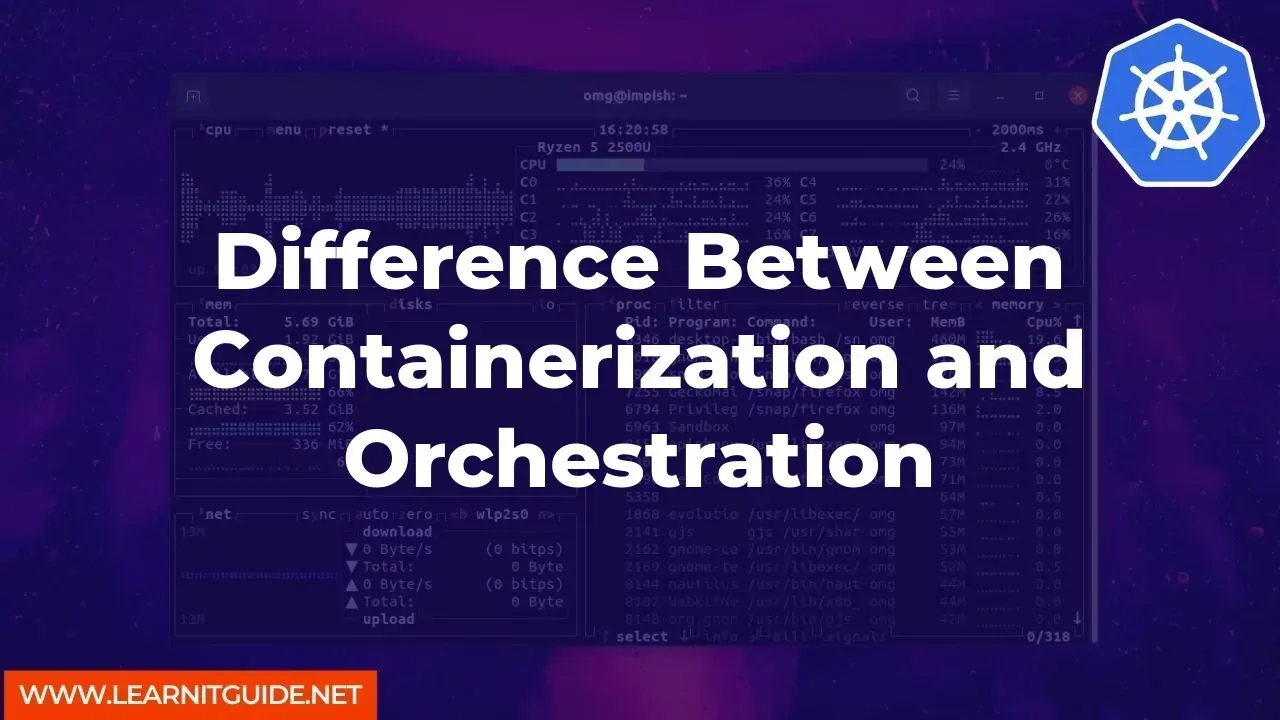In the world of software development, there are two buzzwords that are often used interchangeably, but actually mean two different things: containerization and orchestration. Both technologies are essential in modern software development, but they serve different purposes. In this article, we will explain the differences between containerization and orchestration, and when to use them.
What is Containerization?
Containerization is a technology that allows developers to package applications and all their dependencies into isolated environments called containers. Containers are lightweight, portable, and self-contained, which means they can run anywhere, regardless of the operating system or infrastructure. Containerization is achieved through containerization platforms such as Docker.
What is Orchestration?
Orchestration is a technology that manages multiple containers, their networking, and their resources in a distributed environment. Orchestration platforms such as Kubernetes automate the deployment, scaling, and management of containers, ensuring that the applications run smoothly and efficiently.
Differences between Containerization and Orchestration
- Purpose
The purpose of containerization is to package applications and their dependencies into isolated environments that can run anywhere. The purpose of orchestration is to manage multiple containers, their networking, and their resources in a distributed environment.
- Scope
Containerization focuses on packaging and isolating applications and their dependencies in a single container. Orchestration focuses on managing multiple containers and their resources in a distributed environment.
- Complexity
Containerization is a relatively simple technology that involves creating and running containers. Orchestration is a complex technology that involves managing multiple containers, their networking, and their resources.
- Tooling
Containerization is achieved through containerization platforms such as Docker. Orchestration is achieved through orchestration platforms such as Kubernetes.
When to Use Containerization
Containerization is ideal when you want to package your application and its dependencies into a portable, isolated environment that can run anywhere. Containerization makes it easy to deploy and manage your application in different environments without worrying about the underlying infrastructure.
For example, you can use containerization to package your application and its dependencies into a container, and then deploy the container on a cloud provider such as AWS or GCP. The container will run seamlessly, regardless of the operating system or infrastructure.
When to Use Orchestration
Orchestration is ideal when you have multiple containers that need to work together in a distributed environment. Orchestration makes it easy to deploy, scale, and manage your application by automating the process of container management.
For example, you can use orchestration to deploy a microservices architecture, where different parts of your application run in different containers. Orchestration platforms such as Kubernetes can automatically manage the networking and resource allocation between the containers, ensuring that your application runs smoothly and efficiently.
So, containerization and orchestration are two essential technologies in modern software development. Containerization allows developers to package applications and their dependencies into portable, isolated environments, while orchestration automates the management of multiple containers in a distributed environment. Both technologies have their unique use cases, and it is essential to understand their differences to choose the right tool for the job.
Related Searches and Questions asked:
That's it for this post. Keep practicing and have fun. Leave your comments if any.







0 تعليقات